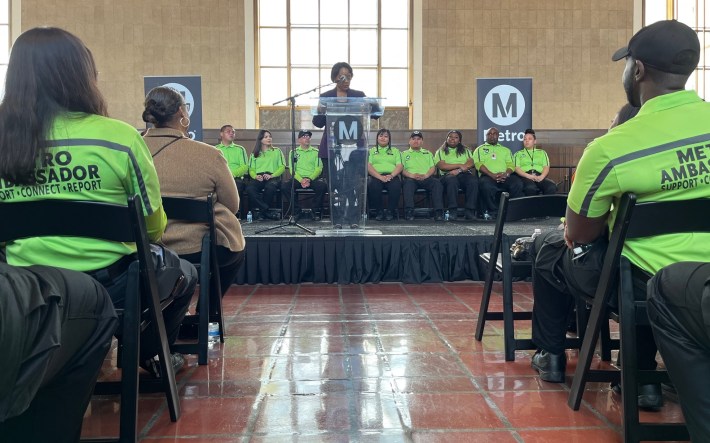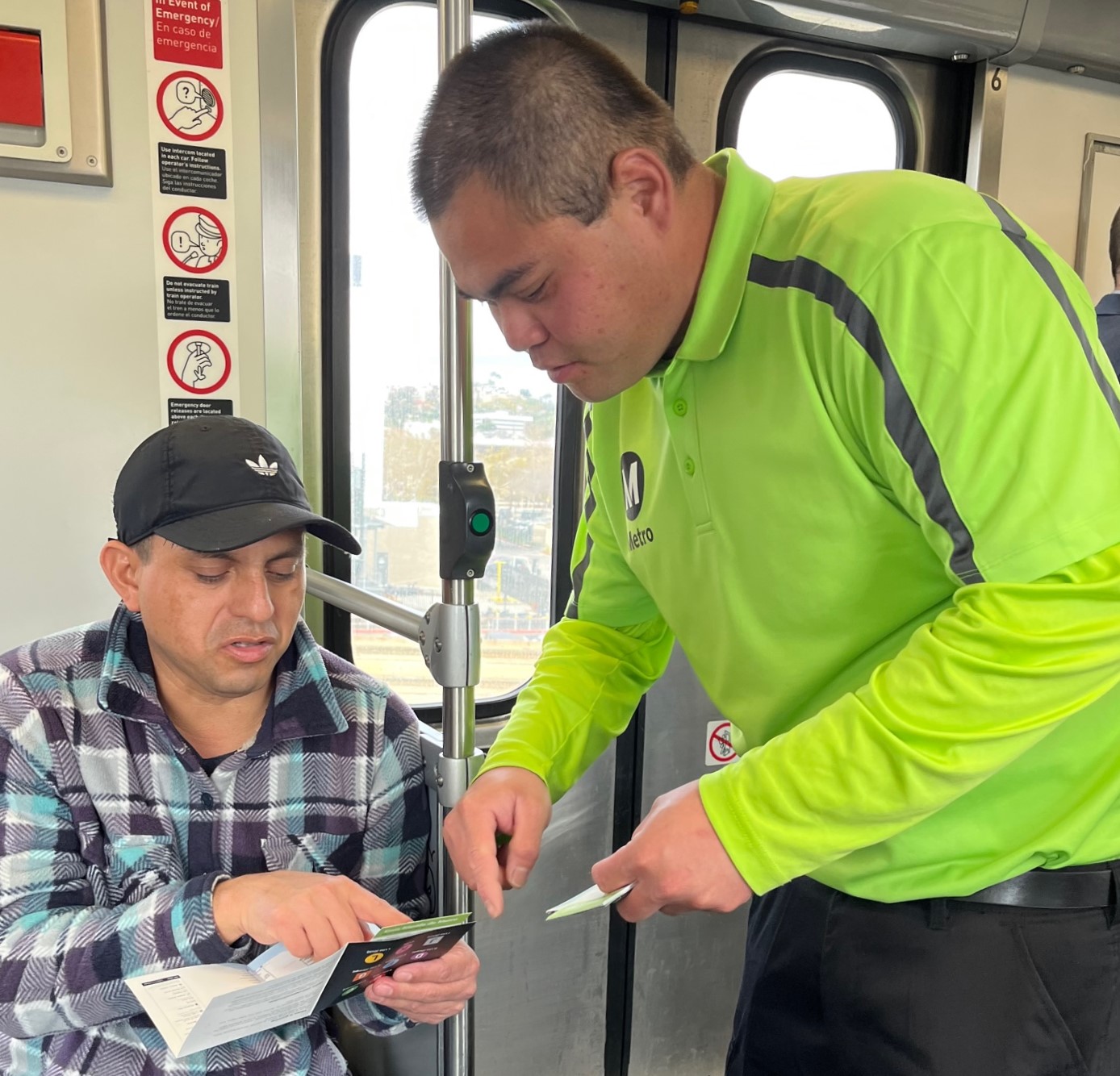Metro officially launched its new transit ambassador program this morning. Nearly 300 Metro transit ambassadors are currently out riding Metro trains and buses.
The Metro board approved a pilot transit ambassador program in 2021 as part of the agency's effort to reimagine public safety and transit policing after the killing of George Floyd by Minneapolis police in 2020. The funding used for the pilot was in addition to, not in place of, its commitments to law enforcement. With the hard launch of a robust ambassador program now underway, that calculus will likely change in the new policing contract.
Metro soft-launched the program last October, with an initial cohort of 60 ambassadors mostly. Green-shirted Metro Ambassadors are ubiquitous on the newly opened K (Crenshaw) Line and also common on various other rail and bus lines.
At this morning's launch, County Supervisor and Metro Boardmember Holly Mitchell, wearing a green ambassador shirt, expressed her pride in the program, describing ambassadors both as "an extra set of eyes in our space" and "a true reflection of the true diversity of L.A. County."
Most importantly, "unarmed and well-trained... ambassadors riding the system every day" are "already making a significant difference [and have] already saved lives," she said.
Officially, ambassadors are charged with welcoming and supporting transit riders and providing information on how to get around, pay fares, and connect with services for unhoused individuals. They also report back to Metro various issues, from maintenance to cleanliness to incidents requiring other Metro personnel. Metro based its approach on successful programs run by San Francisco Bay Area Rapid Transit (BART) and Philadelphia's Southeastern Pennsylvania Transportation Authority (SEPTA).
Several of the ambassadors who have already been active on the system - Jennifer, Ari, P.J., Tak, and Melissa - reported that their most common public interactions have involved giving directions (either to various Metro lines or to local destinations) and helping users navigate TAP card fare payments.
They also spoke about some of their most memorable moments, which ranged from summoning emergency medical responders for a rider experiencing a drug overdose, to helping Nicaraguan tourists get across the bridge to Universal Studios, to singing happy birthday to a elderly tourist from the Philippines visiting L.A. for the first time.

Metro CEO Stephanie Wiggins emphasized that although ambassadors are part of Metro's multilayered plan to reimagine public safety, they are intentionally "part of Metro's Customer Care department because, foundationally, this is a customer care initiative."
Later this month, Wiggins will be presenting the agency's plans for transit safety and policing in upcoming years. Metro will be renewing its five-year law enforcement contract in some form; the current contract ends in June. The board has supported shifting some resources away from armed responders in order to fund ambassadors, services supporting unhoused people and folks experiencing mental health issues, transit station activations, elevator attendants, and more.
Not everyone is happy about the new direction.
The Police Protective League falsely claimed Metro had defunded the police in 2021 - something it suggested was responsible for the rise in drug-related deaths on the system. The scaremongering appears to have been timed to both rally support for maintaining the police budget as-is and stir up opposition to the proposed public safety alternatives ahead of the contract renegotiation. The histrionics are somewhat reminiscent of the unhinged antics of former Sheriff Alex Villanueva, who threatened to defund himself if the department wasn't given both the full policing contract and free rein to police the system as aggressively as he saw fit.
Community groups, most prominently the Alliance for Community Transit (ACT-LA), have urged Metro adopt a safety approach that avoids making armed responders the first responders and instead prioritizes activating stops and stations, providing support services, and prioritizing maintenance and operations.
The agency's approach is likely to fall somewhere in the middle. Hear it presented and join the debate during the March 16 Operations, Safety, and Customer Experience Committee meeting or the March 23 board meeting.






